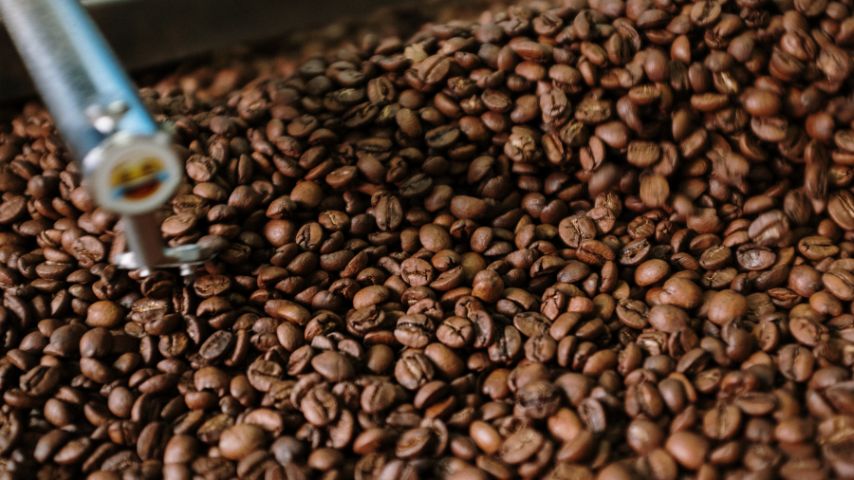Coffee is more than just a morning ritual; it is a global phenomenon that connects people, cultures, and communities. In Newcastle, the coffee scene is thriving, offering a rich tapestry of flavors, techniques, and artisanal practices. This article takes you on a journey from the coffee farm to your cup, showcasing the artistry of Newcastle’s local roasters, their commitment to sustainability, and the unique flavors they bring to the coffee experience.
The Coffee Journey: From Farm to Cup
Overview of Coffee Cultivation
The journey of coffee begins on lush farms where coffee plants thrive. The two primary varieties of coffee are Arabica and Robusta. Arabica beans are known for their complex flavors and are generally grown at higher altitudes, while Robusta beans have a stronger, more bitter taste and contain higher caffeine levels. Understanding the differences between these varieties helps consumers appreciate the diverse flavors that coffee can offer.
Terroir—the environmental factors affecting the crop’s growth, such as soil, climate, and altitude—plays a crucial role in determining the coffee’s quality. Newcastle’s local roasters often source their beans from regions that emphasize ethical and sustainable practices, fostering strong relationships with farmers and ensuring a fair return for their hard work.
Sourcing Coffee Beans
Ethical sourcing has become a significant focus for coffee roasters in Newcastle. Many local establishments prioritize fair trade and direct trade practices, which ensure that farmers receive fair compensation for their beans. This approach not only supports the livelihoods of coffee producers but also encourages environmentally friendly farming practices.
Several Newcastle roasters work closely with farmers, creating a supply chain that values transparency and sustainability. By sourcing beans directly from farms, they can trace the journey of their coffee, ensuring quality and supporting ethical practices.
The Art of Coffee Roasting
Understanding the Roasting Process
Once the green coffee beans arrive at the roastery, the magic of coffee roasting begins. The roasting process transforms these raw beans into the aromatic, flavorful coffee we enjoy. There are three primary roast levels: light, medium, and dark. Each level significantly impacts the coffee’s flavor profile.
- Light Roasts: Retain the most original flavors of the bean, highlighting fruity and floral notes. They are often characterized by their bright acidity.
- Medium Roasts: Balance the original flavors and roasting effects, offering a more rounded taste with hints of caramel and nuts.
- Dark Roasts: Have a bold, rich flavor, often with smoky or chocolatey undertones. The longer roasting time can diminish the unique characteristics of the bean.
Techniques and Equipment Used by Newcastle Roasters
Newcastle’s coffee roasters employ various techniques and equipment to achieve their desired flavor profiles. Common roasting machines include drum roasters and air roasters. Drum roasters use a rotating drum to evenly distribute heat, resulting in a consistent roast. Air roasters utilize hot air to cook the beans, producing a lighter, more delicate flavor.
Temperature control and timing are critical in the roasting process. Skilled roasters monitor the beans closely, making adjustments to achieve the perfect roast. The roaster’s experience and intuition play a vital role in crafting unique blends that cater to local tastes.
Profiles of Local Roasters
Newcastle is home to several esteemed coffee roasters, each with its own story and ethos.
- Dougherty’s Coffee focuses on sustainability and quality, sourcing beans from small-scale farmers in Central and South America. Their signature blends highlight bright acidity and unique flavor profiles, appealing to coffee enthusiasts.
- The Coffee Emporium prides itself on its artisanal approach, experimenting with various roasting techniques to develop distinctive flavors. Their commitment to direct trade ensures that they support farmers while providing customers with exceptional coffee.
These local roasters contribute to the rich coffee culture in Newcastle, offering a diverse array of flavors and experiences for coffee lovers.
Tasting Newcastle’s Coffee
The Flavor Wheel: Understanding Coffee Tasting Notes
Tasting coffee is a sensory experience that involves identifying its unique flavors, aromas, and textures. The flavor wheel is a helpful tool for understanding the various tasting notes, which can range from fruity and nutty to chocolatey and floral.
Coffee enthusiasts can enhance their tasting experience by following these tips:
- Smell: Inhale the aroma before taking a sip to identify the coffee’s distinct characteristics.
- Sip: Take a small sip and let the coffee linger on your palate. Pay attention to the flavors that emerge.
- Savor: Reflect on the aftertaste and overall experience.
Pairing Coffee with Food
Pairing coffee with food can elevate the tasting experience. Some delicious pairings include:
- Fruity Coffee: Pairs well with pastries, like fruit tarts or muffins, enhancing the natural sweetness.
- Nutty Coffee: Complements chocolate desserts, providing a rich, indulgent experience.
- Bold Coffee: Pairs well with savory dishes, such as breakfast burritos or grilled meats, balancing flavors.
Many local cafes in Newcastle offer unique pairing options, allowing customers to explore the depths of coffee flavors in conjunction with delicious food.
The Culture of Coffee in Newcastle
Coffee Shops and Community
Coffee shops in Newcastle serve as social hubs, fostering connections among locals and visitors alike. They are spaces for conversations, creativity, and community engagement.
Events like the Newcastle Coffee Festival celebrate the region’s coffee culture, bringing together roasters, baristas, and coffee lovers for tastings, workshops, and competitions. These events showcase the talent of local roasters and provide a platform for learning about coffee’s intricate world.
Education and Workshops
Many Newcastle roasters offer workshops and classes for those eager to learn more about coffee roasting and brewing techniques. From understanding the nuances of espresso preparation to exploring pour-over methods, these educational opportunities cater to coffee enthusiasts of all levels.
Local coffee schools provide courses on everything from barista skills to advanced roasting techniques, enabling individuals to immerse themselves in the coffee culture and hone their skills.
The Future of Coffee Roasting in Newcastle
Trends in Coffee Roasting
As the coffee industry evolves, Newcastle’s roasters embrace innovative roasting techniques and emerging trends. The popularity of single-origin coffees—beans sourced from a specific region—continues to rise, allowing consumers to appreciate unique flavors tied to their geographical origins.
Experimental processing methods, such as anaerobic fermentation and honey processing, are also gaining traction, enabling roasters to push the boundaries of flavor.
The Role of Technology in Coffee Roasting
Advancements in technology are transforming the coffee roasting landscape. Many roasters are incorporating digital tools to monitor temperature, airflow, and roasting profiles, ensuring precision and consistency. These innovations enhance the quality of the coffee and streamline the roasting process.
Additionally, smart brewing devices have emerged, allowing coffee lovers to experiment with different brewing techniques at home. These technologies offer a customizable coffee experience that caters to individual tastes.
Conclusion
From the lush farms where coffee is cultivated to the skilled hands of Newcastle’s roasters, the journey of coffee is a testament to artistry, craftsmanship, and community. The dedication to ethical sourcing, innovative roasting techniques, and unique flavor profiles sets Newcastle’s coffee scene apart.
As you sip your next cup of coffee, take a moment to appreciate the journey it has made, the farmers who cultivated it, and the artisans who transformed it into the delightful beverage you enjoy. Embrace the rich culture of coffee in Newcastle, and support the local roasters who contribute to this vibrant community.
FAQs
- What makes Newcastle’s coffee roasting unique?
Newcastle’s coffee roasting stands out due to its focus on ethical sourcing, community involvement, and the diversity of flavors offered by local roasters. - How can I learn more about coffee roasting?
You can learn more about coffee roasting through local workshops, online courses, and by visiting Newcastle’s coffee shops that offer educational programs. - What are the best coffee shops in Newcastle to try local roasts?
Some of the best coffee shops in Newcastle include Dougherty’s Coffee, The Coffee Emporium, and other local favorites known for their quality brews and unique blends. - What are the different roast levels, and how do they affect flavor?
Coffee roast levels include light, medium, and dark, each offering distinct flavor profiles that range from fruity and bright to rich and bold. - Why is sustainable sourcing important in coffee production?
Sustainable sourcing ensures fair compensation for farmers, supports environmental practices, and promotes transparency in the coffee supply chain






